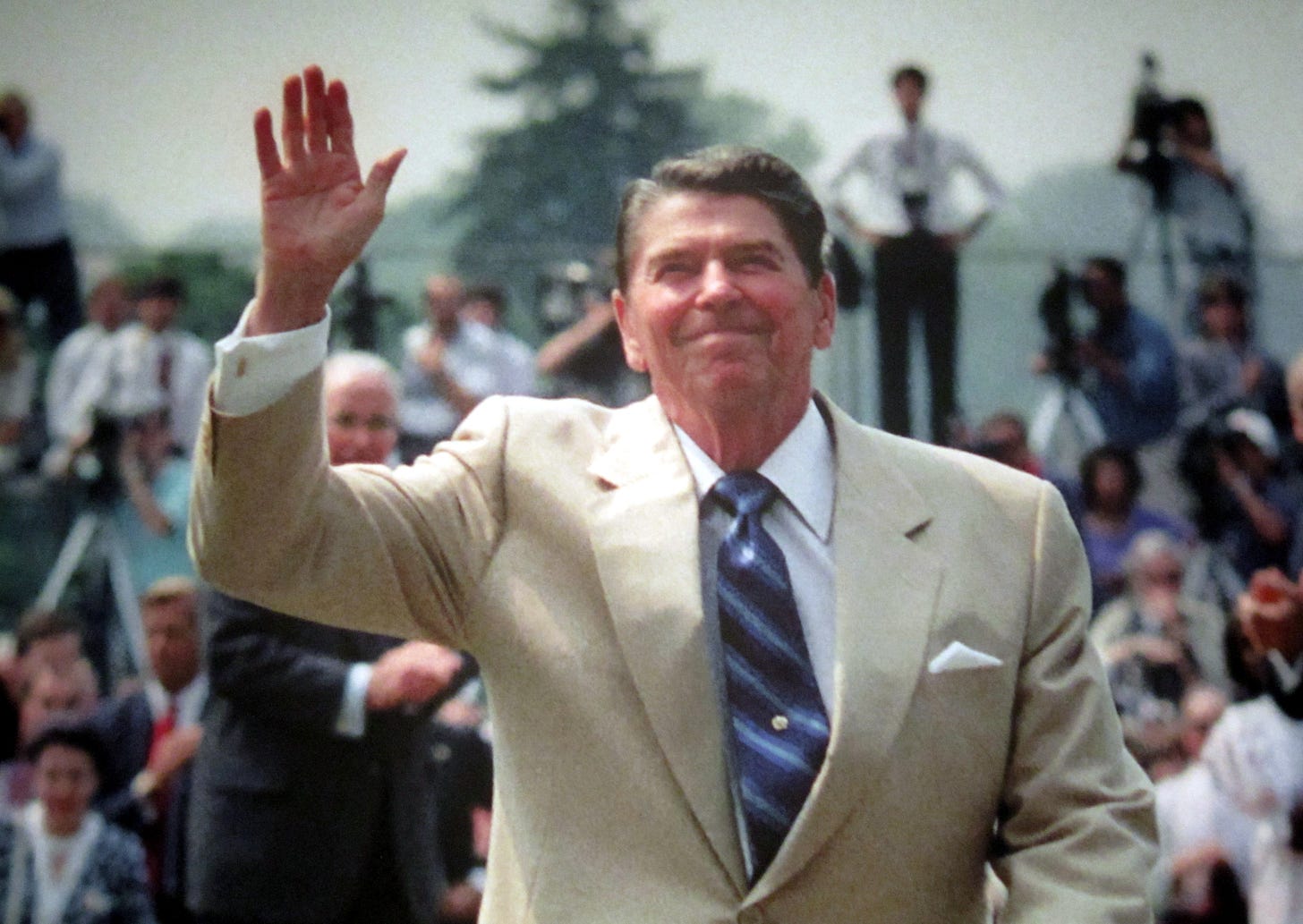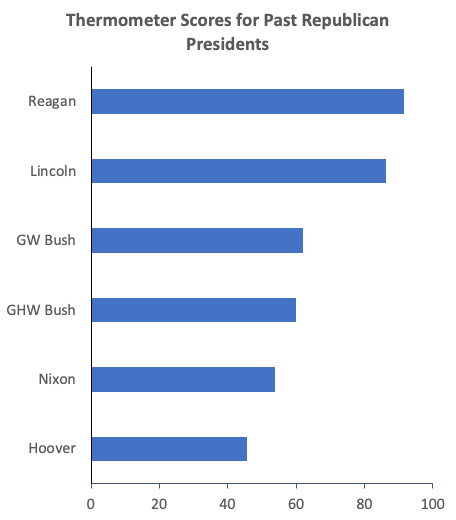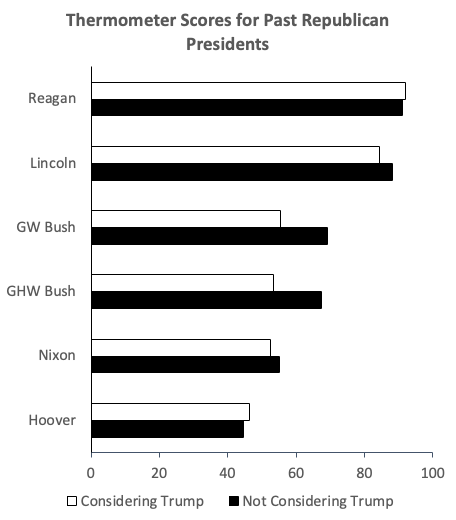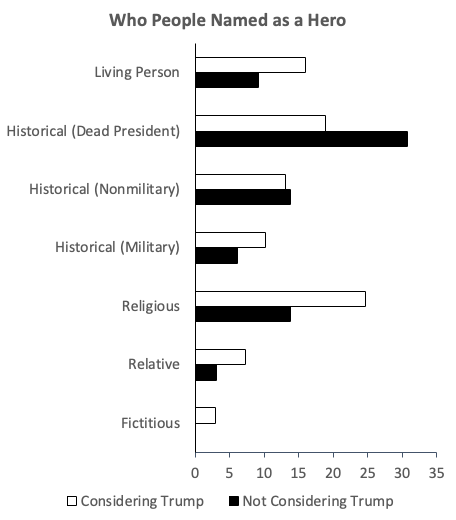How Trumpists View Their Party and Their Heroes
Some differences in how Republicans evaluate their own past presidents
[Welcome new subscribers!]
In my most recent survey of county Republican chairs across the country, I asked them a few questions about how they regard previous Republican presidents. They reveal a mostly harmonious party, but with some important distinctions based on whether one is a Trump supporter today.
I asked the chairs to provide a “feeling thermometer” evaluation of six previous Republican presidents — Abraham Lincoln, Herbert Hoover, Richard Nixon, Ronald Reagan, George H.W. Bush, and George W. Bush. These thermometer scores range from 0 to 100, with 100 being the warmest one can feel toward someone. Here are the overall evaluations:
A thing I did not expect was that Reagan would be evaluated so highly — 91.6 overall. The modern Republican Party under Trump has often seemed to downplay the Reagan era. While Reagan was, for decades, the great unifier in an often fractious party, the “Reagan-Bush coalition” has been something of a minority faction of late, with Reagan’s cocktail of tax cuts, robust military expenditures, and attacks on welfare seeming rather out of date. Yet that doesn’t seem to have diminished Reagan’s personal legacy, as he’s evaluated even more highly than even Lincoln.
The same cannot be said for the Bushes. George W. Bush, who once had a national approval rating around 90 percent, today hovers just above a feeling thermometer of 60 among Republicans — roughly the same as his one-term father. Nixon and Hoover are somewhat less popular at 54 and 46, respectively.
In the figure below, I’ve broken down these thermometer ratings by whether the respondent said they were considering supporting Trump for the 2024 nomination:
Here we see some notable distinctions, but only with regards to the Bushes. Those considering Trump tend to evaluate the Bush presidents about 14 points lower than other Republicans do. This is not terribly surprising — Trump has singled out the Bushes as a problematic political family, and the Bushes have made no secret of their dislike for Trump. Interestingly, there is no such distinction for evaluations of other presidents.
Here’s another way of examining differences among Republicans: I asked them to name someone — dead or living, real or fictitious — they consider a hero.
(You’ll like this content! Please consider supporting Tusk for a mere $8 a month to see the rest.)
I divided the answers into different categories:
Living people: Trump was the most named person in this category, which also included people like Rand Paul, Ted Cruz, and Elon Musk.
Historical (Dead President): Ronald Reagan, Abraham Lincoln, and George Washington were the most named here, although Calvin Coolidge did get a shout-out.
Historical (Nonmilitary): The most named figures were Winston Churchill, John McCain, Martin Luther King, Jr., and John Wayne. This category also contained a few ancient figures (Cincinnatus and Frederick the Great), some non-Americans (Moshe Dayan, Nelson Mandela), and the list’s only famous woman (Margaret Thatcher).
Historical (Military): This was mostly World War II figures, especially Douglas MacArthur and George Patton. Robert E. Lee was included in here.
Religious: Of the 26 answers in this category, 23 were Jesus Christ, although the Apostle Paul, Noah, and God were also mentioned.
Relative: Most in this category named a parent.
Fictitious: This is just two votes for Superman.
In the chart below, we can see how these categories vary by whether the person responding is considering supporting Trump or not.
The breakdown shows a few interesting distinctions among the respondents. Those interested in Trump as a candidate were far less likely to name a past president as a hero, though considerably more likely to name Jesus, as well as a military figure. Unsurprisingly, those interested in Trump were overwhelmingly the ones to name him as a hero. The non-white and female figures (MLK, Mandela, Thatcher) were all named by those interested in Trump, as was Superman.








